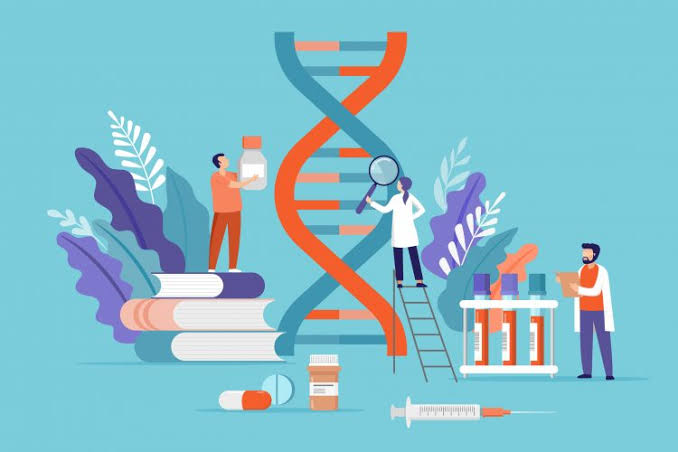Have you ever heard of clinical trials before? During the COVID-19 pandemic, it was a phrase that was used quite often. Clinical trials are studies that aid in testing new drugs, already approved medication, and other treatment forms.
The purpose of clinical trials is to look for new ways to diagnose, treat, or measure the rate at which the disease has spread. Another purpose of this is to prevent a disease from happening.
Scientists and researchers alike use human volunteers to carry out these testing methods. Since these trials are fundamental in promoting good health, you might be interested in participating in one. If you are interested, there are different clinical research websites that you can visit to submit your application. But before you do that, it is important that you know what is involved in clinical trials.
With this in mind, this article will discuss some important things you should know about clinical trials and what happens in them. Let’s begin.
Important Information to Know About Clinical Trials
The following are some vital things you should know:
They are the Backbone of Drug Development
Have you thought of the contents of your medication box before? You have different medicines in it that serve different purposes. However, before these drugs were made available to the public, they passed through many years of research and scientific studies to ensure that they are safe for use. One of the processes in these studies is called clinical trials.
These testing processes provide important information about a medicine’s effectiveness and safety. The information gotten from the studies can also lead to the development of other treatments. Any medication you have taken must go through this process.
Participation is Personal
Your decision to participate in a clinical trial is personal. Everyone has different reasons to volunteer for it. Some of the common reasons why many choose to participate include:
- They want to help in the advancement of science and the treatment of their condition.
- They want to help others with a particular disease.
- They want better treatment for themselves.
- They want to learn more about their condition and its treatment.
- They want to receive information about the results of the scientific study after it ends.
- They want to feel part of a community.
The Health of Participants is Important to Researchers and Medical Professionals
One of the major responsibilities of the researchers or medical professionals who conduct this scientific study is to care for the volunteers. The doctors, nurses, and researchers will ensure that they monitor the participant’s well-being and safety. They would ensure that the trial is based on the participant’s interest and physical condition. So, if a volunteer cannot undergo a clinical trial, these healthcare professionals will diligently withdraw him or her from participating. If you would like to know some of the things that can make a volunteer to be withdrawn, check here: https://healthtalk.org/
They Have Rules on Who Can Participate or Not
There are several factors that can determine whether a person can volunteer for this or not. Some of these factors include:
- Age
- Type and Stage of a Condition
- Treatment History
- Current medication taken
These factors are important to consider. They determine which specific group of people can participate in the scientific research and stay safe.
The Benefits and Risks Differ from Volunteer to Volunteer

Since everyone is different, we react to clinical trials differently. For instance, one participant might experience a particular side effect that another person wouldn’t. Researchers can only move forward if the scientific studies show potential benefits for the participants. Before you apply for a clinical trial, many researchers ensure that they let you know the potential risk and benefits you will face. It is left for you to decide whether or not to proceed.
Clinical Researchers have an Ethical Framework to Protect Volunteers
You don’t have to doubt your safety if you decide to volunteer for this. It is mandatory for everyone who carries out scientific studies to have strict ethical and legal responsibilities governing their operations. There are different regulatory organizations that ensure that these responsibilities are duly followed by the researchers. One of these organizations is the Ethics Review Board (ERB).
The Ethics Review Board reviews a scientific study trial to make sure that the appropriate steps are taken to protect volunteers. If you would like to know more about what the ERB does, read this article.
Volunteers can Drop Out at Any Time
You are free to drop out of the trial even after you have agreed to take part in it. You don’t even need to give a reason for this. You can choose to stop participating regardless of how far you may have gone in the study. The medical professionals will remove you from the trial in a safe way.
What Happens in Clinical Trials
Here are some important steps to follow in this scientific research study:
- The researchers will explain what the process is about and get information about you
- You would be asked different questions. If you meet the criteria needed, you will sign an informed consent form
- If accepted, you will be registered for a baseline visit with the researchers. In this visit, the medical professionals will conduct physical and cognitive tests on you.
- After the tests, you will be assigned to a treatment group.
- Regularly, you might visit the research website to schedule newer cognitive, physical, and other important tests with staff. During these visits, the team collects important information about your safety and well-being.
- You will continually visit a physician throughout the scientific study.
Conclusion
The decision to participate in a clinical trial is yours alone to make. If you are considering this, ensure that you keep the vital information passed in this article in mind in your decision-making.
